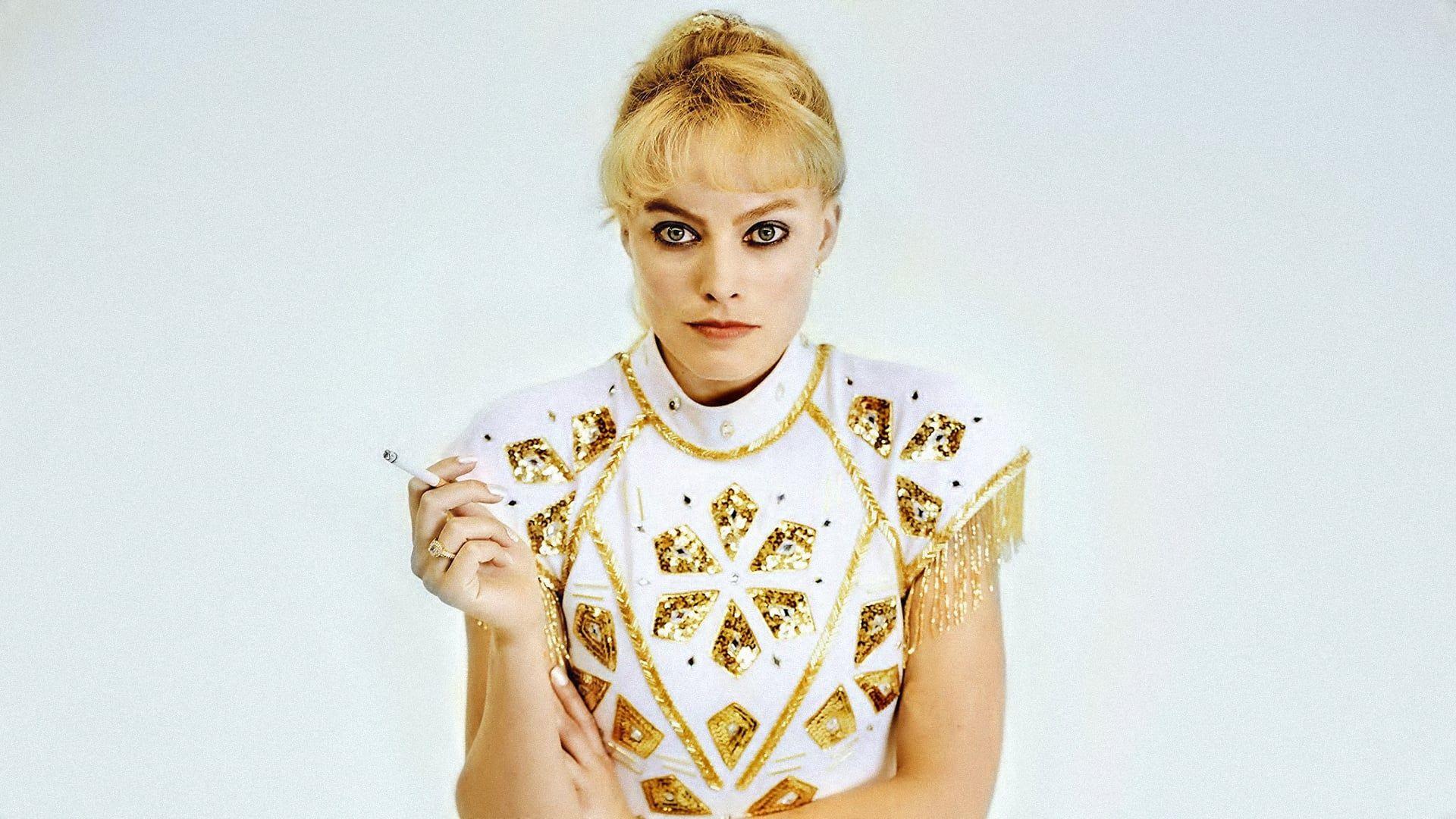The gauche horror show that is I, Tonya is primarily one of smug condescension. How funny you find this blunt, coercive movie—which, by the way, finds itself a stitch—will determine how much you enjoy movies that revel in contempt. That Margot Robbie—as the titular, would-be Olympic princess who couldn’t overcome her milieu of abusers and ended up a joke of a footnote in American pop culture—gives an ultimately affecting performance is a herculean achievement given that it would seem at cross purposes with those of director Craig Gillespie (Lars and the Real Girl) for most of his self-satisfied picture.
Former figure skater Tonya Harding is primarily known—and infamous—for the unfortunate 1994 “incident” that temporarily hobbled rival Nancy Kerrigan, but I, Tonya, a confessional mockumentary (a shopworn conceit in 2017) has a lot of laughs at her expense as a tale of the American dream gone very wrong, and early.
Pushed into figure skating at a tender age by her foul-mouthed, waitress mother Lavona Golden (Allison Janney, having a ball), Harding’s sheer talent propels her to the top. It’s also a talent noticed by bottom-feeding Jeff Gillooly (Sebastian Stan, solid), who becomes her boyfriend and later husband, perpetuating a cycle of abuse she’s known her entire life.
But she could do one thing that no one else could, and that was her triumphant triple axle. For a moment it seemed Harding was primed to be the best in the world, but she couldn’t escape her dimwitted inner circle of oddballs, starting with Gillooly, who knew she was his meal ticket, and his hapless buddy Shawn Eckardt (Paul Walter Hauser), who orchestrated the plot to take Kerrigan out with the help of a hired goon named Shane Stant (Ricky Russert). But it was Harding who took the public fall for their plot.
To its credit the picture, scripted by Steven Rogers based on interviews with Harding, Gilloly and others, brings additional insights into Harding’s ascent and public shaming, depicting not a scheming vixen but rather a wounded bird with a great talent who fought hard to overcome class biases in an elite sport that required talent (she had it) and image (she didn’t) in equal measures. While not quite revisionist history, the endearing Margot Robbie makes it hard to deny Harding a retrial.
The heart of this picture lies not on the ice but in the domestic melee that brought Harding down, and her inability to ever fully break free from her exploiters. All of this is charted by a wily Hard Copy reporter played with relish by Bobby Cannavale.
Gillespie’s on-the-nose caricature of a movie leaves us no breathing room to make up our own minds about how we feel. Instead, this breakneck cartoon makes pronounced declarations for us—Gilooly is a possessive yokel, LaVona a monster, Eckhart a cretin, Stant a clueless thug, Kerrigan a joke. You get the idea. Meanwhile, the details of her abuse—she’s beaten, stabbed and even shot—aren’t funny, and do not jibe with the rest of the film.
Throughout the sordid milieu that was her lot, the Tonya presented here is immensely likeable, more so than anyone remembers from the on and offstage Olympic dramas. Credit Robbie for resisting this picture’s modus operandi to have a laugh at her character’s expense.
As always, Janney excels, here oozing corrosive zingers as the stage mom from hell who never misses an opportunity to remind her daughter of her sacrifices and who, like everyone, betrays her in the end.
Perhaps the most ironic part of this largely self-satisfied free-for-all is the assertion—after making fun of her for 90 minutes, mind you—that we, the audience, are the architects of Harding’s misfortunes. And then it asks us to sympathize.
The trash epic on display here is a fractured fairy tale ending not with the would-be princess rescued but instead cruelly imprisoned in a hard-knock spiral, ours for the taking (or punching). It may sound absurd, but Tonya Harding—if the events of her life here are indeed true—deserves a lot better. Like life, the movie doesn’t do her justice.
2 stars.



